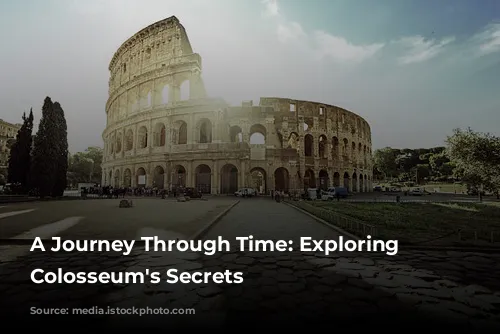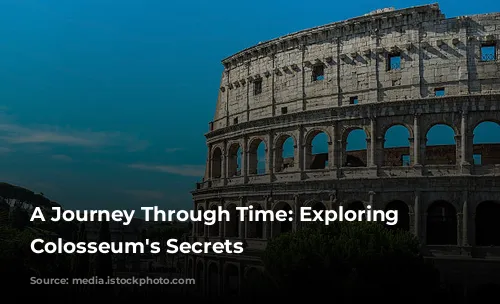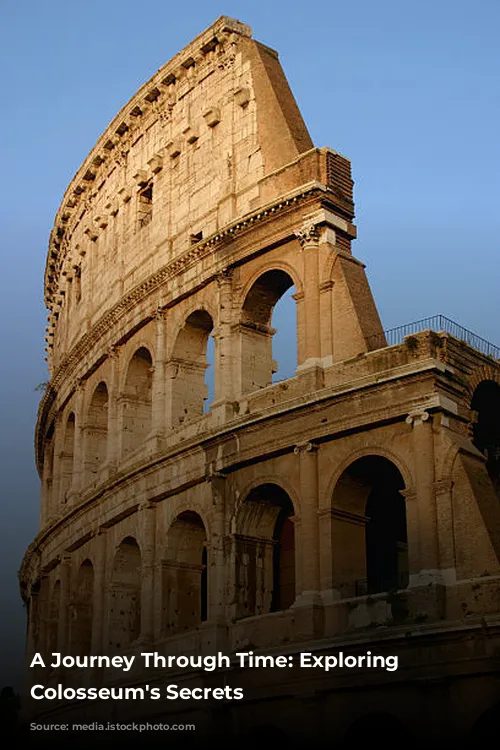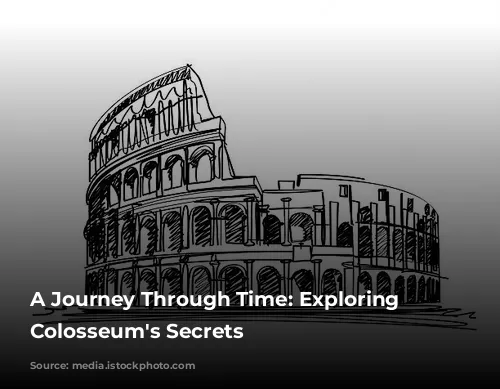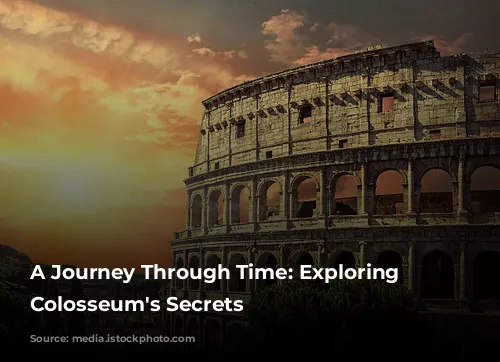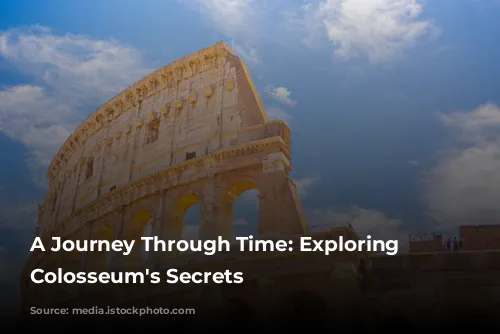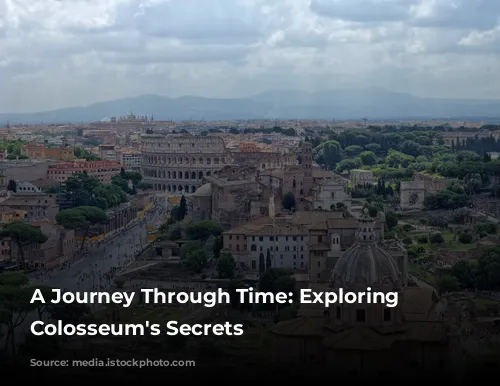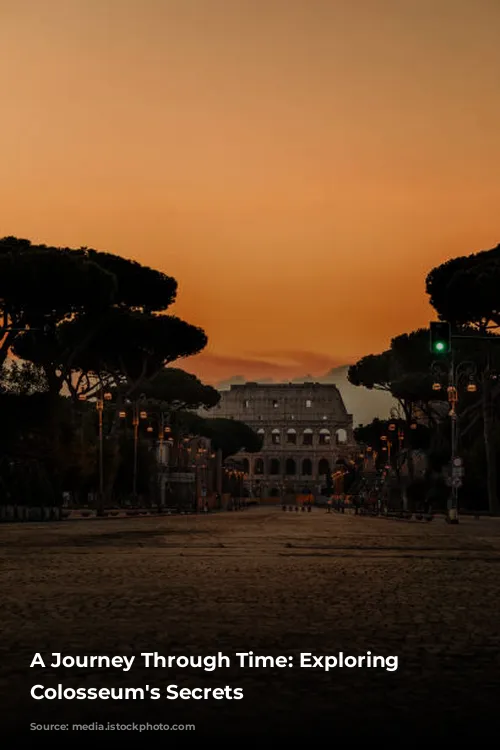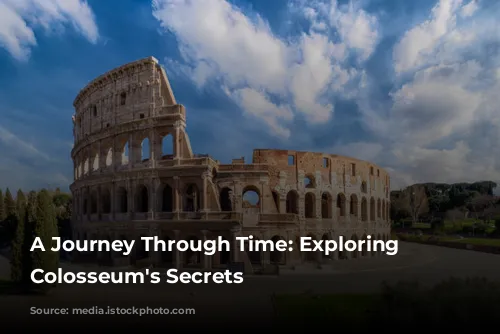The Colosseum: a name that echoes with the grandeur of ancient Rome. This iconic structure stands as a testament to human ingenuity, having witnessed the rise and fall of empires over centuries. In this guide, we’ll delve into the Colosseum’s fascinating history, uncovering the secrets that lie within its imposing walls. While this guide might not replace a real tour, it’s sure to spark your curiosity and leave you yearning for more.
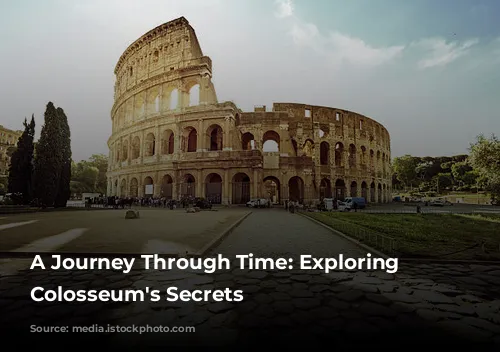
The Colosseum: A Monument to Power
Originally known as the Flavian Amphitheater, the Colosseum is an elliptical structure nestled in the heart of Rome. Built by the Flavian emperors, it was a symbol of their power and authority. The sheer scale of the Colosseum is breathtaking: spanning 189 meters in length and 156 meters in width, it could accommodate over 50,000 spectators! This engineering marvel remains the largest amphitheater ever constructed, a lasting testament to the might and splendor of ancient Rome.
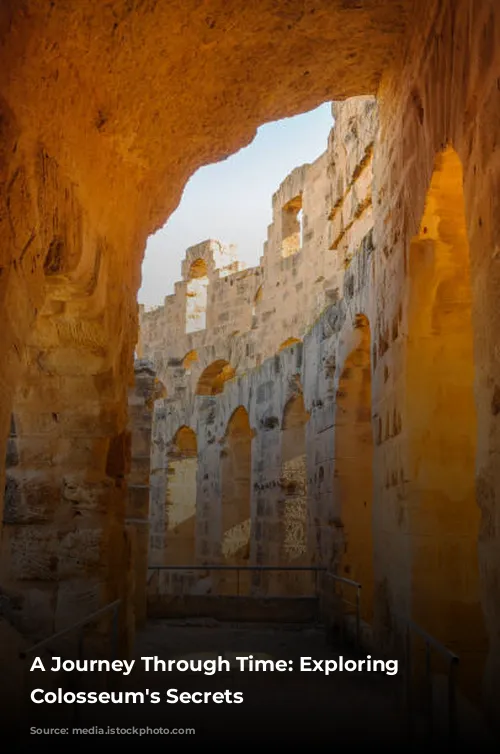
A Triumph of Engineering and Craftsmanship
Construction began under Emperor Vespasian in 70 AD and was completed by his son, Titus, in 80 AD. The Colosseum’s construction was a feat of engineering, requiring an estimated 100,000 cubic meters of travertine stone just for the outer walls! Skilled Roman builders employed an innovative system of pulleys, cranes, and other tools to transport and assemble these massive stones. Despite facing earthquakes, fires, and other disasters throughout history, the Colosseum has remained largely intact and is completely safe for visitors.
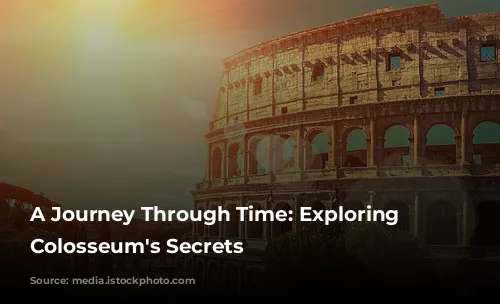
A Legacy of History, Architecture, and Entertainment
The Colosseum’s importance extends beyond its architectural grandeur. It played a crucial role as a venue for spectacular events and entertainments, showcasing the extraordinary cultural and artistic achievements of ancient Rome. It also stands as a poignant reminder of the darker aspects of Roman history, such as the brutal spectacles that unfolded within its walls.
The Colosseum introduced groundbreaking architectural innovations. It serves as an early example of the use of concrete in construction, and its ingenious design, including a complex system of tunnels and passageways, continues to inspire architects and engineers to this day.

A Stage for Thrilling Spectacles
The Colosseum was renowned for its gladiatorial combats. These brutal contests pitted highly trained warriors, known as gladiators, against each other in fierce battles to the death. These games were an integral part of ancient Roman culture, serving as both a form of entertainment and a means of reinforcing social hierarchy. Victors gained fame, fortune, and the admiration of Roman spectators.
The Colosseum also hosted wild animal hunts, known as venationes. These events showcased the prowess of specially trained hunters who faced off against exotic wild animals imported from across the empire. Lions, elephants, and even wild bears were brought to Rome and released into the arena, where they engaged in to-the-death battles with the brave hunters. These spectacles allowed the Romans to demonstrate their mastery over the natural world and flaunt the vast reach and wealth of their empire.
Beyond gladiatorial combats and animal hunts, the Colosseum was a stage for elaborate reenactments of famous battles and historical events. These performances were meticulously staged, with intricate sets, costumes, and thousands of participants. The Colosseum was even transformed into a temporary pool to host mock naval battles, known as naumachia. These events showcased Rome’s naval prowess and offered another form of thrilling entertainment for the masses.
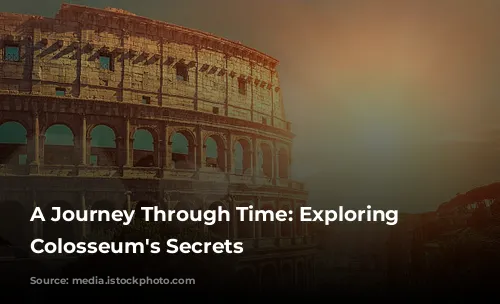
Experience the Colosseum for Yourself
If this glimpse into history has sparked your interest, why not visit the Colosseum yourself and explore this ancient wonder? A tour of the Colosseum is an unforgettable experience, allowing you to immerse yourself in its rich history and captivating stories. However, a guided tour, led by knowledgeable and enthusiastic experts, can enhance your experience, offering invaluable insights into the Colosseum’s architecture, history, and cultural significance.
A guided tour can unlock hidden treasures, revealing the ancient tunnels beneath the Colosseum and other areas closed to the general public. Consider an intimate private tour for a more personalized experience, or even a nighttime tour for a unique perspective under the stars. No matter your choice, a tour of the Colosseum is a must-see for any traveler to Rome.
